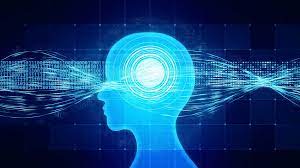Memory loss can stem from a variety of causes and manifest in different forms. That makes its effective diagnosis and treatment pretty complex. Evoke Neuroscience investigates the processes used to pinpoint memory loss issues. They will also explore various treatment possibilities to manage this bewildering phenomenon.
Diagnosing Memory Loss
Accurate diagnosis entails a systematic approach, incorporating medical assessments, cognitive tests, and sometimes brain imaging. First, a thorough evaluation of medical history and a physical examination help identify any health issues that might contribute to memory loss.
Second, a neurological exam enables the healthcare professional to assess a person’s reflexes, coordination, muscle strength, and general neurological function. Neurocognitive tests are used to evaluate memory, problem-solving, attention, language, and spatial skills. Also, blood tests can identify vitamin deficiencies, thyroid issues, or other conditions that may be linked to memory problems.
In certain cases, imaging tests like CT, MRI, or PET scans can help detect brain abnormalities, such as inflammation, strokes, or tumors. After reviewing these assessments, your healthcare provider may discover an underlying cause for memory loss.
Manage Underlying Conditions
If memory loss stems from conditions like depression, anxiety, or a vitamin deficiency, managing those issues can substantially improve memory. Prescribing medications to treat depression or anxiety might help restore memory function. Also, addressing nutritional deficiencies with supplements, such as vitamin B12, may help alleviate memory loss symptoms.
Cognitive Training and Rehabilitation
Some memory loss cases can benefit from cognitive training and rehabilitation. Evoke Neuroscience Techniques like using mnemonic devices, following a daily routine, and employing calendars and reminder notes can benefit those with mild cognitive impairment or early-stage dementia. Also, professional cognitive rehabilitation programs can help individuals develop strategies to improve memory function.
Medication
In the case of progressive memory loss caused by diseases like Alzheimer’s, certain medications may slow down the decline. Cholinesterase inhibitors help boost levels of chemicals involved in memory and judgment and may alleviate cognitive symptoms for some individuals with Alzheimer’s. While memantine works by regulating glutamate activity, potentially delaying the progression of Alzheimer’s symptoms for some individuals.
